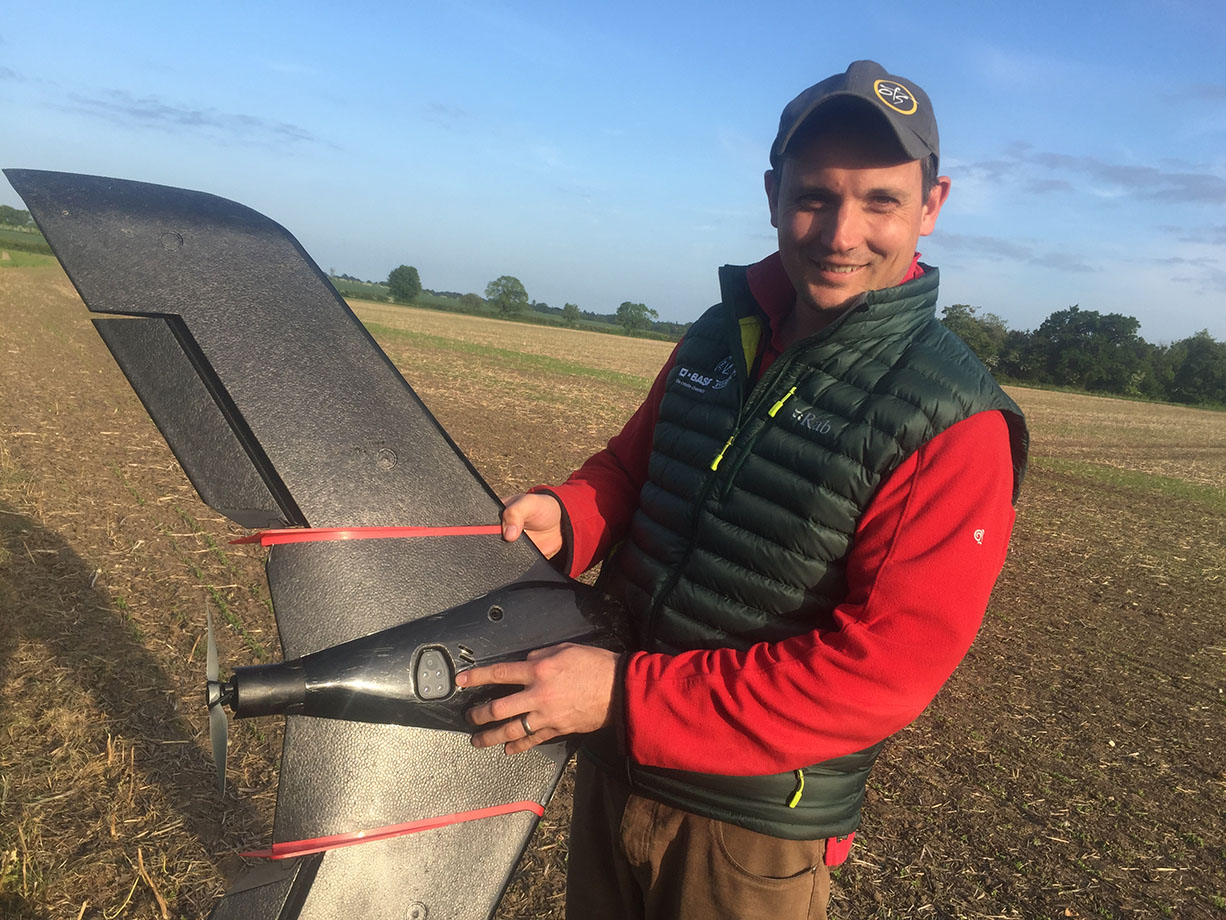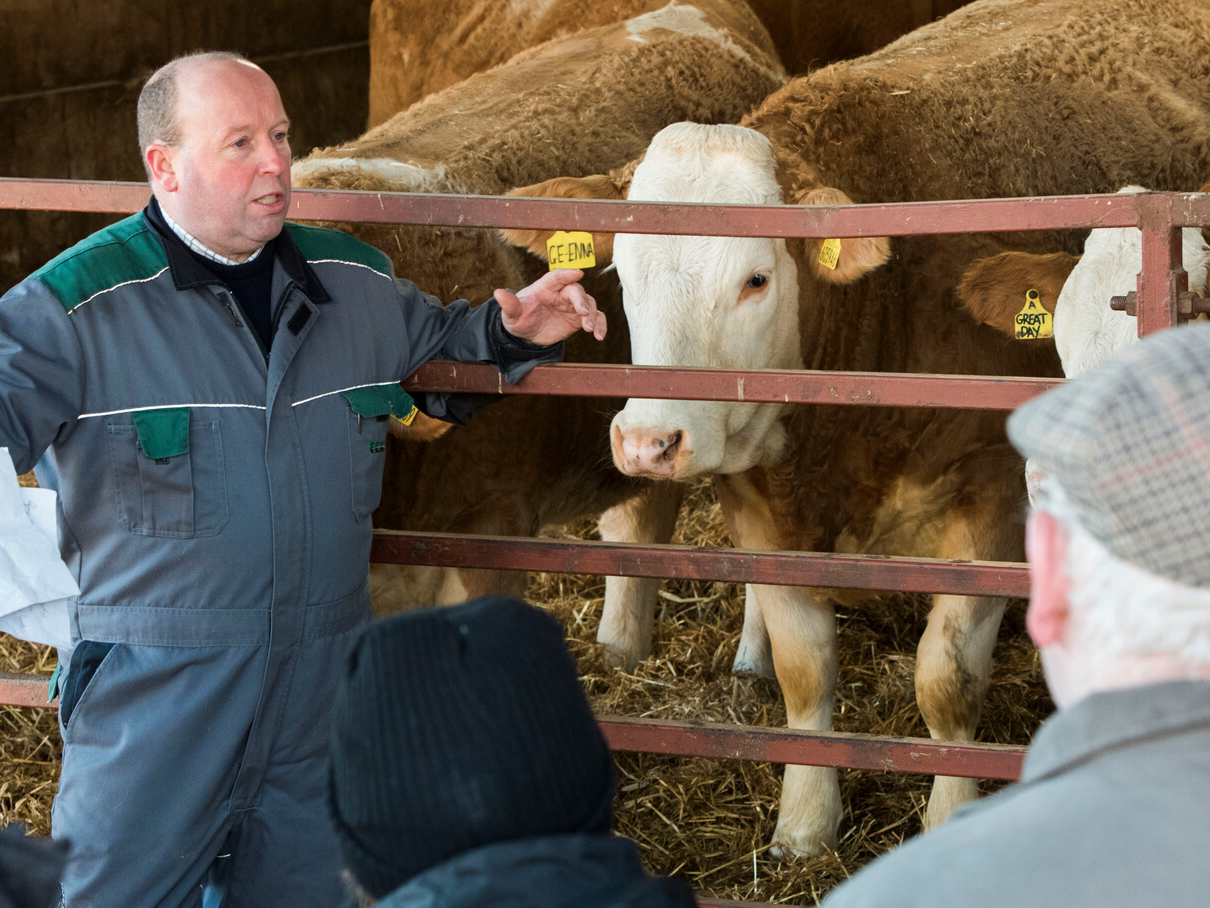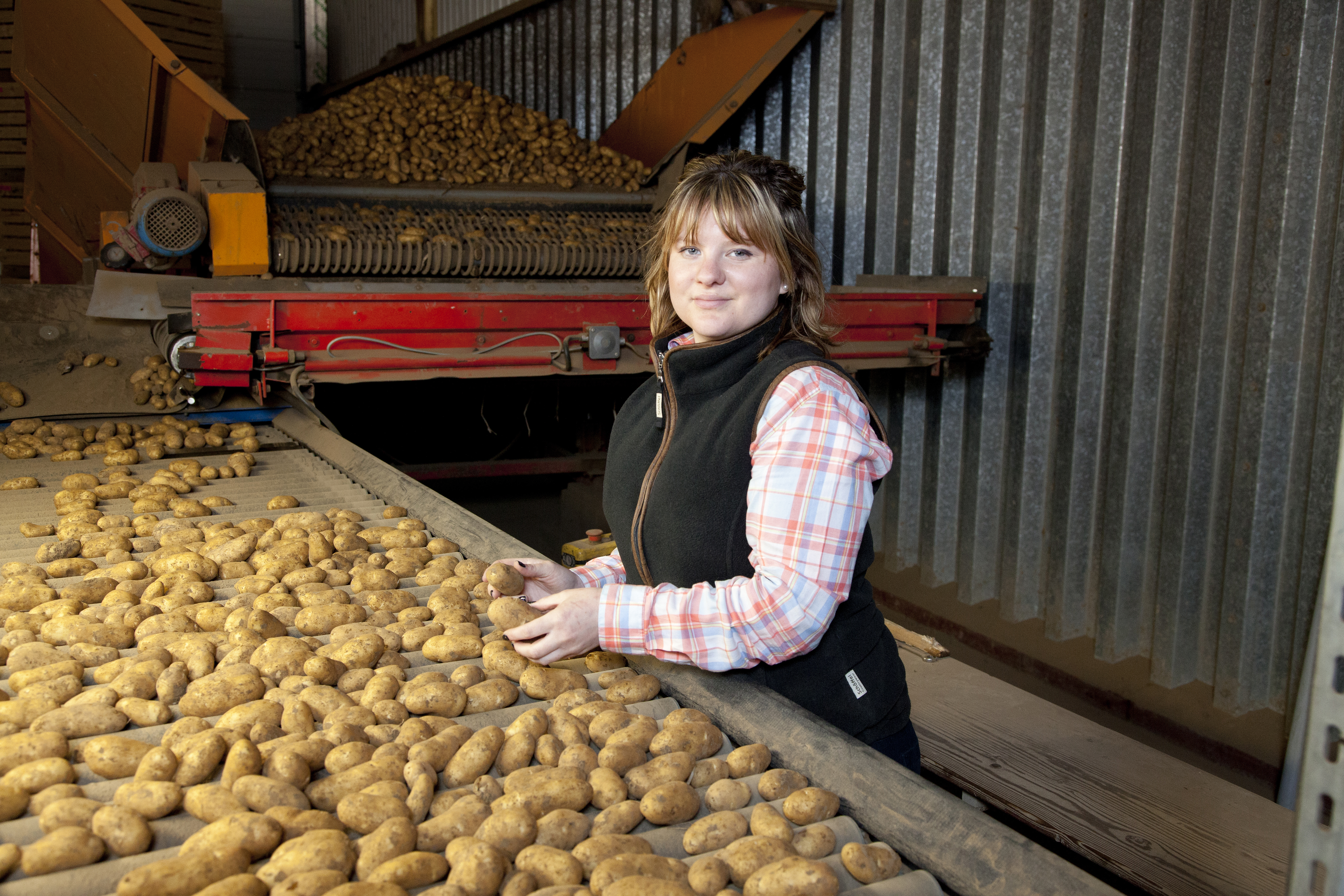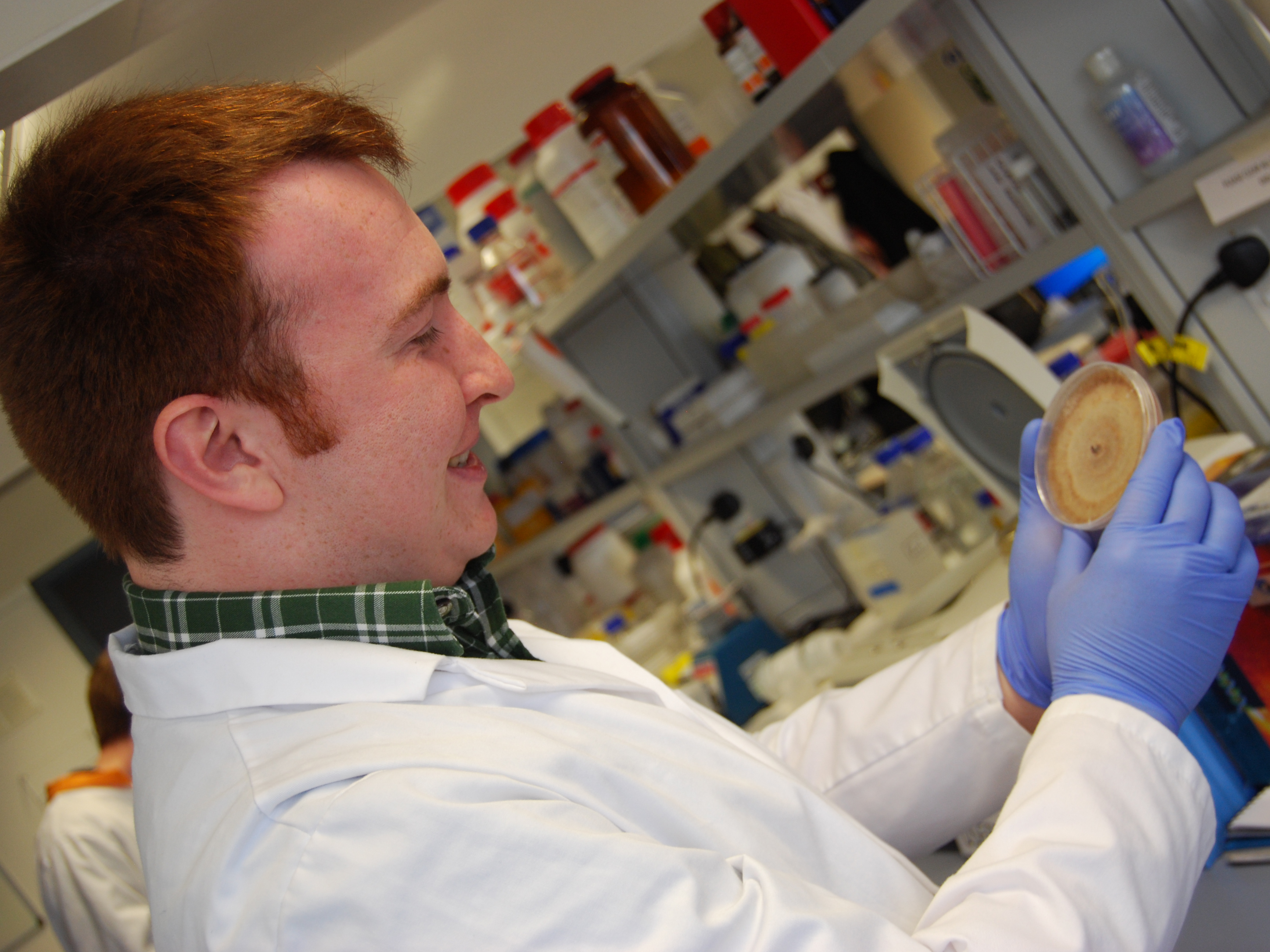- Home
- Skills Leadership Group
Agriculture & Horticulture Skills Leadership Group
Building a skilled workforce in agriculture and horticulture is one of the greatest opportunities of our time.
To meet the challenge of modern farming and environmental practice and to stay competitive, we need to be ambitious about developing our people. This means getting better organised to maintain and attract sufficient labour with the right skills for the future. Taking a more structured and agile approach to lifelong learning could unlock improvements in productivity, profitability and sustainability.
Our UK industry currently under invests in people development compared to competitors and is fragmented in delivering training, skills, continuing professional development and career routes nationally.
The industry has a wealth of excellent providers and stakeholders in this area, but there is no single entry point for critical information, no go to coordinating body accessible to all. This fragmentation impacts negatively for employers, those currently working in the industry and potential new entrants, such as students or career changers. Too much guidance is buried in silos and we are currently not projecting a strong enough, coherent message about a professional industry at a time when it is so needed.
Future of Skills Fringe
The NFU's Next Generation Forum and AHDB hosted a fringe event at the prestigious Oxford Farming Conference to help launch a new multi-agency vision to transform the skills landscape.
You can watch the full fringe session below, held on 7 January 2020. (Video courtesy of Oxford Farming Conference)
Frequently Asked Questions
|
What is being done and why? |
- The industry-led Skills Leadership Group (SLG) is working to inspire and change attitudes towards people development to prepare the industry for a new world - The SLG aims to set up a professional body – a go-to place for critical careers information – that encourages lifelong learning for all - We need to get better organised to meet the challenges of modern farming and environmental practice. An ambitious approach to skills requires bold action |
|
Why is this important? |
- The industry recognises that the impact of age demographics and changes in quality and availability of international workers means it must improve its image as an employer and with consumers. To meet the changing requirements of modern farming and environmental practices, it will also need to invest more in training and skills development. This is in order to maintain and attract sufficient labour with appropriate skills - Agriculture and horticulture play a vital role in the economy. Other countries are developing formal structures to support the skills needs of their production agriculture and horticulture industries. The UK risks falling behind these nations, including those where significant future trading relationships will need to be sought, if it does not seek to create a means for the recognition of professional standing in primary food production and related aspects of animal welfare and environmental management in efforts to become net zero - The industry must also position itself as competitive against other industries, like construction, which have professional bodies of their own. It is important the industry is able to invest to attract the best talent and retain, continually train, and motivate staff |
|
How were members chosen for the SLG? |
- The widely endorsed June 2018 Swadling Report recommendation that industry leaders come together to lead on skills drew on members from the Agri-Skills Forum and Defra’s Agri-Tech Skills Steering Group to form the SLG - Members are industry leaders in the skills field, who have been willing to contribute their time to driving the strategy forward - Formal leadership and membership of any new professional body will be considered later |
|
Why were the skills recommendations prioritised by the FDSC? |
- It was the Agricultural Productivity Working Group within the Food and Drink Sector Council (FDSC) that prioritised a new skills strategy and took the SLG’s recommendations to Defra - Learning from other industries, like construction, the SLG believes that professional development of the workforce is key to improving productivity, competitiveness and sustainability |
|
How does this work relate to what is already happening in the industry around skills? |
- The new professional body for agriculture and horticulture will serve as a go-to place for coordinating critical information on training, skills, continuing professional development and career routes - It will point to all existing and new providers and work with partners to make key information more accessible. It will set up an independent professional framework of competencies and qualifications around job roles; ensuring future training is more employer-led - All of its work will enhance what is already available, by providing a central shop window for lifelong learning. This is about partnership with others already working in the field |
|
Doesn’t AHDB already do this? |
- While AHDB does work on skills, it does not fulfil the role of coordinating the industry’s future on skills provision and recognition of the skills and professionalism in the industry |
|
Who is this aimed at? |
- All of the agriculture and horticulture industry, including employees and employers, training providers, stakeholder organisations, teachers, the public, etc. - We aim to gain the confidence of talented young people (and their parents and careers advisers) to attract them to jobs in the industry, as well as customers, consumers, wider society, legislators, inspectors and those campaigning against farming - We want to encourage those passionate about sustainable environmental practices and high animal welfare to join the industry in celebrating professionalism |
|
What is the scope? |
- England - Primary production |
|
Why is the scope just England? |
- The focus is on England, recognising that the devolved regions are keen to develop their own skills strategies, although we anticipate a lot of collaboration and that ultimately a wider remit may be appropriate |
|
Why do we need another body? |
- The industry is more fragmented, compared with others in the UK. This impacts the strength of the collective voice of agriculture and horticulture - The industry must act cohesively and as a whole in order to be fit for the future and be able to be heard as one strong voice - The professional body will act as a coordinator, not a delivery body, in order to elevate the profile of its partner organisations |
|
Where is the money coming from? How will it be sustained? |
- We are seeking pump-priming funding from Government to develop the body while exploring sustainable solutions to maintain the body’s work - We aim to have a mixed funding model, with income from grants, membership fees, partnerships and possibly Government - Work is being done to refine funding requirements amounts |
|
What are the timescales? |
- To initially establish the professional body with core functions in 2020. We want to kick-start a national campaign with the industry about the importance of building a skilled workforce for the future |
|
Isn’t this just recreating the wheel? |
- The professional body aims to act as an umbrella for work being done in the industry. It should enhance what is already underway not duplicate or overlap current work |
|
Will there be a chartered status in the professional body? |
- This is not the aim of the professional body but may become a long-term outcome as it develops - Development of the body will be led by industry demand - The intention is to allow better recognition of the competencies already being held/developed across the industry at all levels |
|
How will I/my staff access the professional body and its offer? |
- Access will be through a virtual space – a web portal and social media. This will host information on career advice, employee/employer support and professional framework, including CPD opportunities. A membership area will enable individuals and teams to track their professional development |
|
What is a formalised pathway? |
- This means recognised approved routes into agriculture and horticulture. Clarity about what competencies are required for specific jobs and what careers and progression is available |
|
What mechanisms are in place to incentivise uptake? |
- We will need to kick-start a national debate in the industry about the importance of investing in our people. We are also exploring, with Defra, changes to policy to incentivise more interest and positive action on farm around lifelong learning |
|
How does this link to assurance schemes? |
- A world-class farm assurance scheme should start (and end) with the competence of the people on the farm, with something in the middle about testing that competence against agreed standards |
|
What is meant by professionalism? |
- Professionalism can be defined as “the engagement in any activity for gain or reward with a high degree of competence that is clearly demonstrable. Inspiring confidence” - Businesses with competent people will produce more and in a more environmentally and welfare-friendly way. Being professional is about both being competent and being able to demonstrate that competence to a wider audience and thereby inspiring their confidence |
|
Why is it important I’m seen as professional? |
- It is important to be recognised as a professional industry to showcase to wider society the structured nature of the sector and provide a clear channel and opportunity for new talent to enter the industry - Having a body comparable to those that exist in other industries will help raise the agriculture and horticulture sectors’ profiles. |
|
Why is CPD important? |
- The industry has always relied on skills and we need to continue to upskill to prepare for the future. We believe that lifelong learning – the ongoing pursuit of knowledge – is critical for all if the industry is to thrive in changing times - CPD is about tracking and documenting the skills, knowledge and experiences you gain at work, both informally and formally. It is a record of what you experience, learn and then apply - Investment in staff skills and training is just as useful for the business and the individual as maintaining equipment or buying new machinery |
|
How is CPD maintained for temporary staff? What if I train staff and they leave? |
- The virtual web space will provide a place to track personal development, which new employers can view and address gaps. By upskilling all staff, the industry can establish baseline competencies for all workers - This will help ensure recurrent use of temporary staff or staff turnover means a maintained skill set |
|
I’m an employee, will I be able to take my record with me if I change employer? |
- Through personal tracking in the virtual web space, employees are able to maintain their training and development records in one place. This is in effect a ‘virtual CV’ which can be shared with your current or future employer. |
|
Is this for me or for my staff? Why me? |
- This new professional body will be accessible to the entire industry, with bespoke areas for individuals and organisations. It will be tailored to deliver for all grades of employees, whether entry level or experienced practitioners |
|
What benefit is it to me? |
- It is a ‘one-stop shop’ for all your skills and training. It will provide advice and guidance against your professional goals and allow you to take a virtual ‘CV’ throughout your working career |
|
I own my own farm/don’t employ staff/am retiring. Is this relevant still? |
- The professional body is still very relevant. It will provide you with a snapshot of the skills in your business and access to a network of professionals in your industry who can help guide you in the next steps for your business |
|
I’m happy with what I do already/ know what I’m doing/performing well. |
- This is perfectly fine. Joining the professional body is not mandatory. However, it may be worth exploring what is on offer and assessing if this body can help make a difference |
|
Is there a danger that this SLG vision may lead to a ‘licence to farm’ situation? |
- Many farmers and growers do not support the idea of a licence to farm and/or are concerned about creeping standards - The SLG understands the concerns of any farmers worried about the project being the thin end of the wedge and recognises that the industry exists in an ever-changing world, with everything from production methods, technology and markets being subject to change over time - The recommendation report that led to the SLG project and subsequent work has focused on helping producers and growers get ahead in a highly, and increasingly, regulated world in order to future-proof the industry - Rather than a licence to farm, the SLG sees this work as an opportunity for producers and growers to be the best they can be in a difficult economic climate while supporting increased productivity - Membership of the professional body would be inclusive to allow everyone access to skills and lifelong learning - Membership would also be voluntary. Those who do use the new body and its online portal will hopefully find it beneficial and advantageous - The portal will help link up already existing iCPD initiatives which the industry is familiar with and which work well, e.g. NRoSO, crop-based assurance schemes, and NPTC qualifications - What this project is about is ensuring our industry has access to the most up-to-date skills, knowledge and learning, as well as getting recognition of the skills and professionalism within our industry - Likewise, it is about bringing everything into one place, reducing duplication and simplifying the learning landscape - The direction of this work is shaped by SLG members, which includes representation from AHDB and NFU |


We have developed a bold, new skills strategy with a core recommendation to set up a professional body for agriculture and horticulture in England.
This new organisation will:
- Establish an independent professional framework of competencies and qualifications around specific job roles
- Ensure future qualifications and continuous professional development meets the technical and business needs of employers
- Develops and promotes clear career paths and ways to progress
- Provides business support for employees and employers
The new professional body will serve as a coordinating force, similar to the Construction Industries Training Board for the building industry. It will work to drive transformational change: positive attitudes towards personal development, seeing training and skills as an investment not just a cost; improving the industry’s professional profile to new recruits and inspiring employees and employers towards lifelong learning.


This new body will become a one-stop place to go, a shop window, for careers information, linking through to and promoting all existing providers of training and CPD. It will build a database of members and record their career credentials over time.
This initiative is being driven forward by key industry stakeholders who joined forces to create The Agriculture & Horticulture Skills Leadership Group (SLG). The Group includes employers, leaders from the NFU Next Generation, the AHDB, Defra and Harper Adams and many other participants involved in various work-streams. The key proposal to launch a professional body in 2020 has been supported by the Agricultural Productivity Working Group within the Food and Drink Sector Council and is being considered by Government.
Crucial to its success is partnership – working with all the other industry providers and stakeholders to roll out the new skills strategy together. The SLG has set the direction but we need a united approach that plays to the strengths of all stakeholders to bring the new skills strategy to life and to deliver real, lasting change.
So, we are looking for partners (individual and organisations) to join us on the journey.


Ways to get involved
- Help us champion this initiative: join in the industry debate about the importance of lifelong learning
- Lend your support to setting up the new professional body
- Get involved by bringing your expertise and influence to the planning table
What you'll get in return
- Influence the delivery of the new skills strategy
- Be jointly promoted as a "founding partner" of the new professional body
- Align your organisation with one of the most positive campaigns for the future of the industry
- Play a key role in helping industry have access to well trained staff and a talent pool
This is a game-changing initiative designed to transform industry attitudes towards lifelong learning. With your support, we can do more than just talk about. Together we can make it happen. If you want to get involved, contact amie.burke@ahdb.org.uk
Membership
AHDB is a founding partner of the SLG and supports with the facilitation of the group. Members of the SLG and its working groups have joined on a voluntary basis. The group continues to seek partners whose work aligns with their priorities.
To help build on the great work and contribute to the delivery of our key ambitions contact us
| Member | Organisation | Role |
|---|---|---|
| Helen Woolley | Independent | Chair |
| Simon Gadd | NFU Next Generation Chair | Vice-Chair |
| Oli Lee | NFU | Vice-Chair |
| Beverly Dixon | G's Fresh | Co- Member |
| John Shropshire | G's Fresh | Co- Member |
| Richard Longthorp | Trailblazers Apprenticeships Employer Group Chair | Member |
| Prof. David Llewellyn | Harper Adams University | Member |
| Guy Smith | NFU Deputy President | Member |
| Jane King | AHDB | Member |
| Janet Swadling | Independent | Member |
| Judith Batchelar | Sainsbury's | Member |
| Matthew Naylor | Naylor Flowers | Member |
| Tess Howe | AHDB | Member |
| Lord Donald Curry | House of Lords | Ambassador |
| Caroline Povey | Defra | Advisor |
| John Hustler | Defra | Advisor |
| Philip Oxley | Department of Education | Advisor |
| Samantha Crocker | AHDB | Project Manager |

